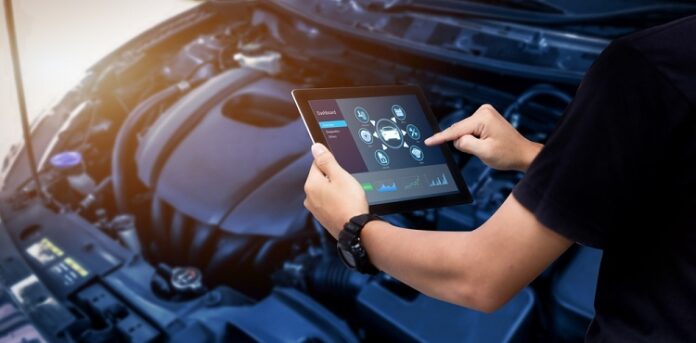Vehicle maintenance is a key aspect of ensuring the smooth operation and long life of the vehicle. It’s a systematic process that includes regular inspections, scheduled maintenance, and timely repairs to keep your vehicle running at peak performance.
Terms of maintenance:
Car maintenance periods are determined by the manufacturer and depend on the number of kilometers traveled or the period of operation. This usually includes changing the oil and filters, checking the cooling system, brake system, fuel system, looking at the ignition system and other key components.
Stages of maintenance:
- Changing oil and filters: One of the most important maintenance steps to keep your engine running properly.
- Brake System Check: Checking the condition of the brakes and their effectiveness for road safety.
- Checking the cooling system: An important aspect to prevent engine overheating.
- Checking and adjusting the steering: To ensure the accuracy and safety of driving the car.
- Electrical System Check: Includes checking the battery, ignition system, lights and electronics.
Materials and tools for maintenance:
- Oil and filters: Important for engine oil changes.
- Replacement tools: From wrenches to specialized equipment for replacing parts and components.
- Diagnostic equipment: Sensors, scanners and other tools for diagnosing problems.
- Cleaning materials and lubricants: To maintain cleanliness and lubrication of car parts.
- Quality spare parts and repair kits that you can buy in the Klifex store with worldwide delivery.
Regularity of maintenance:
Regular maintenance will ensure not only the optimal operation of the car, but also prevent the occurrence of serious problems. By maintaining regular service intervals, you maintain the safety, performance and longevity of your vehicle.
The value of regular inspections:
- Carrying out a technical review: Regular technical reviews help identify potential problems and prevent negative consequences.
- Checking Fluid Levels: Checking and topping up fluids such as oil, coolant and transmission fluids helps keep systems running properly.
The importance of effective oil maintenance:
Oil Change Frequency: Regular oil changes are one of the key aspects of maintenance, as oil is the “vital” fluid for the engine to function properly.
Choosing the right oil and filters: Using the manufacturer’s recommended oil and high-quality filters is essential to ensuring effective oil service.
Features of care of the braking system and chassis:
Checking brake pads and discs: Regularly checking the condition of brake parts, ensuring they are working properly and replacing them in a timely manner is critical to safety.
Chassis Maintenance: Maintaining the proper setup and condition of the suspension and steering system.
The importance of diagnostics and repair of electrical systems:
Checking the battery and ignition system: Regularly checking the condition of the battery and elements of the ignition system allows you to prevent problems with starting and efficient operation of the engine.
Conducting diagnostics: Using specialized equipment to identify and eliminate potential problems in the electrical system.
Availability of information and resources for maintenance:
Using the service manual: Using the manufacturer’s instructions and recommendations to perform the service correctly.
Access to online resources and forums: Using informational resources and sharing experiences on forums can help solve questions and problems during service.
Car maintenance is an important aspect of ensuring its reliability and service life. Regular maintenance in accordance with the established deadlines and using the correct materials and tools are the keys to the successful operation of the vehicle.
















